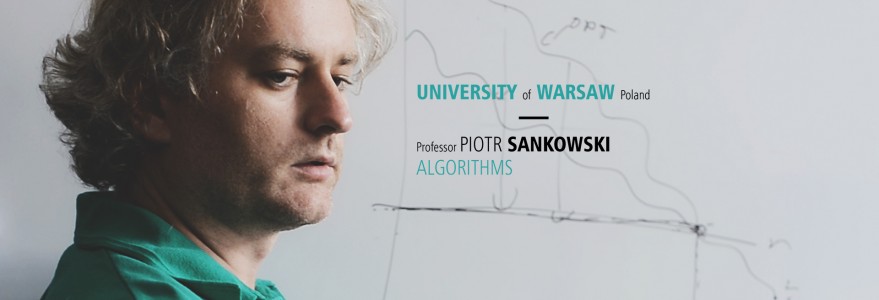Professor Piotr Sankowski is building a special library. It’s library consisting of approximation algorithms. See the movie about laureate of the European Research Council grant.
University employs 3,500 scholars. Special focus should be directed on the laureates of the European Research Council competitions. The funds from ERC are available to scientists from all around Europe, so Polish scientists compete on equal grounds against their peers from all other countries of the continent. So far, Poland won 14 ERC grants, of which 7 went to the University of Warsaw. In other two projects University participates as the institutional partner, cooperating, among others, with the University of Oxford.
This evolved into our idea for film presentations of the laureates of European Research Council competitions. We started with Piotr Sułkowski from the Faculty of Physics, who won the grant in 2013.
Piotr Sankowski
Professor Piotr Sankowski, Faculty of Mathematics, Informatics and Mechanics, University of Warsaw – laureate of the European Research Council grant supporting most talented young researchers (2010). Received 1 mln euro for a project „PAAL – Practical Approximation Algorithms Library”.
The PAAL is an open source, a header-only, generic library consisting of approximation algorithms, data structures and several complete solutions for the various optimization problems. The PAAL is implemented taking advantage of the new features of C++ introduced in the C++14 standard, which in many cases simplify greatly creation of generic code.
– The project will be finished in the end of October 2015. Practically all the basic scientific objectives of the project have been achieved. Of course, we are still working on selected aspects of the project, for example on the practical part, which envisages creating a library of approximation algorithms – says prof. Piotr Sankowski.
In 2015 professor Sankowski received an ERC grant in the competition – the Proof of Concept – for the commercialization of research results.



